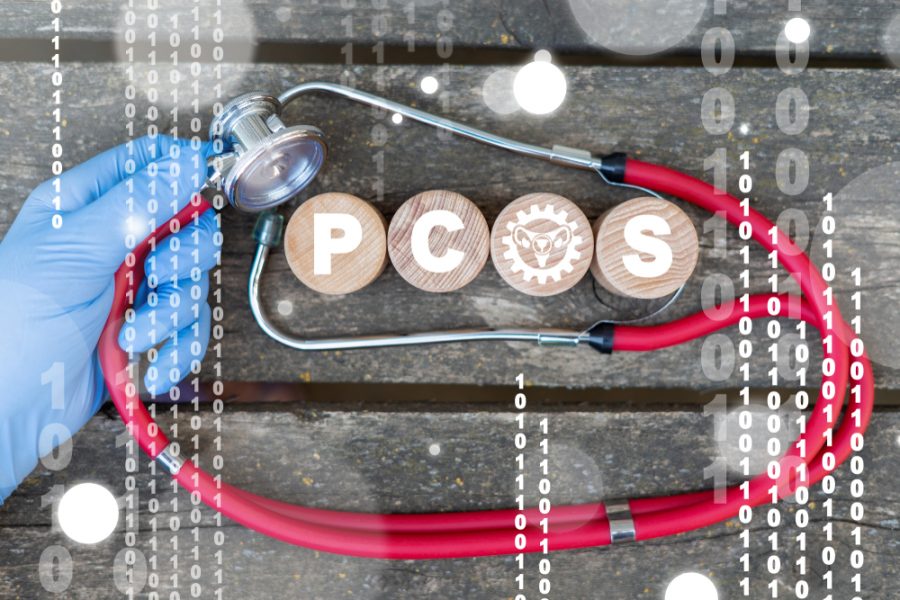PCOS is one of the most common fertility challenges faced by women in the developed world. The NHS estimates it affects as many as one in five women in the UK, meaning even if you don’t have it, you very likely know someone who does. It’s well worth understanding how to condition operates, and most importantly, how it affects fertility and what you can do to get pregnant when have PCOS.
How Does PCOS Stop You Getting Pregnant?
PCOS is a hormone driven condition: it starts with your body producing too much insulin, and this causes excess levels of both testosterone and oestrogen, and further effects like high level of Luteinising Hormone (LH).
This causes lots of symptoms, from weight gain to acne outbreaks. It can also affect your menstrual cycle. The hormone irregularities in PCOS cause the eggs in your ovaries to take longer to develop, and for your period and ovulations to depart from a regular cycle. This means that as well as having fewer chances to get pregnant, the opportunities you do have are harder to identify.
How Can You Improve Your Chances?
There are two key steps to take to give yourself a better chance of getting pregnant: making sure you know when you’re going to ovulate, so you can take full advantage of the opportunity for pregnancy it represents, and encouraging your body to ovulate both more frequently and more regularly, giving you more opportunities to get pregnant and making them easier to identify.
Monitoring Ovulations
Tracking ovulation with PCOS needs a bit more thought than if you don’t have the condition. The same hormone imbalances that cause your menstrual cycle to become long and irregular also distort the results from hormone based ovulation tests. These tests, also known as OPKs (or ‘Ovulation Predictor Kits’) look for the Luteinising Hormone surge in your urine that signals ovulation, but PCOS can cause false positives or false negatives, meaning you don’t get an accurate notification of when you’re ovulating.
Basal body temperature charting or Progesterone tests can get you more accurate answers about your ovulation that cut through some of the confusion PCOS can cause.
Ovulating More
There are several things you can do that will help you ovulate more regularly. Medical solutions exist, including medication that helps to give your hormones a push toward ovulation, and even surgical procedures that drill into the ovary lining.
You can also attempt to control the hormones that cause PCOS by altering your diet: a low GI diet can help to reduce the amount of insulin your body produces, and you can support this by taking a supplement of Inositol, a natural compound that helps your body use insulin more effectively.
These simple measures can help your body re-establish a more regular ovulatory cycle and give you more opportunities to get pregnant, even with PCOS!


